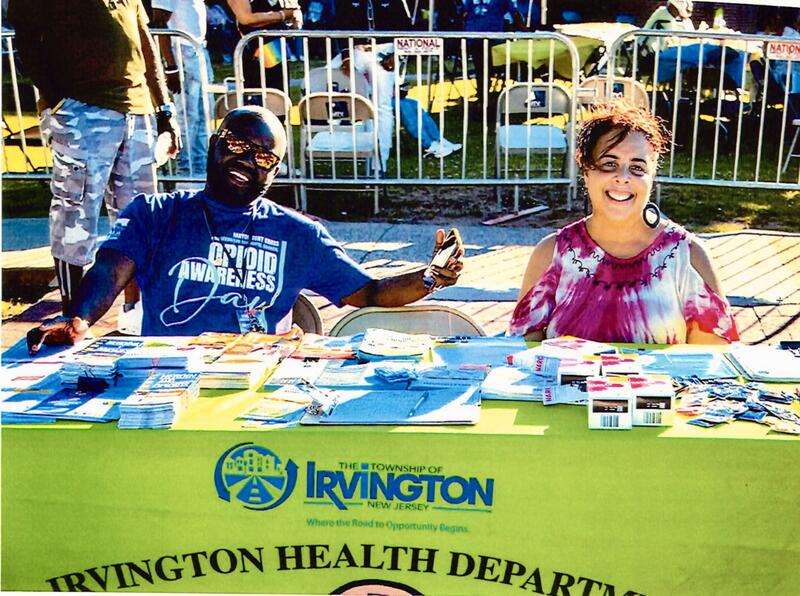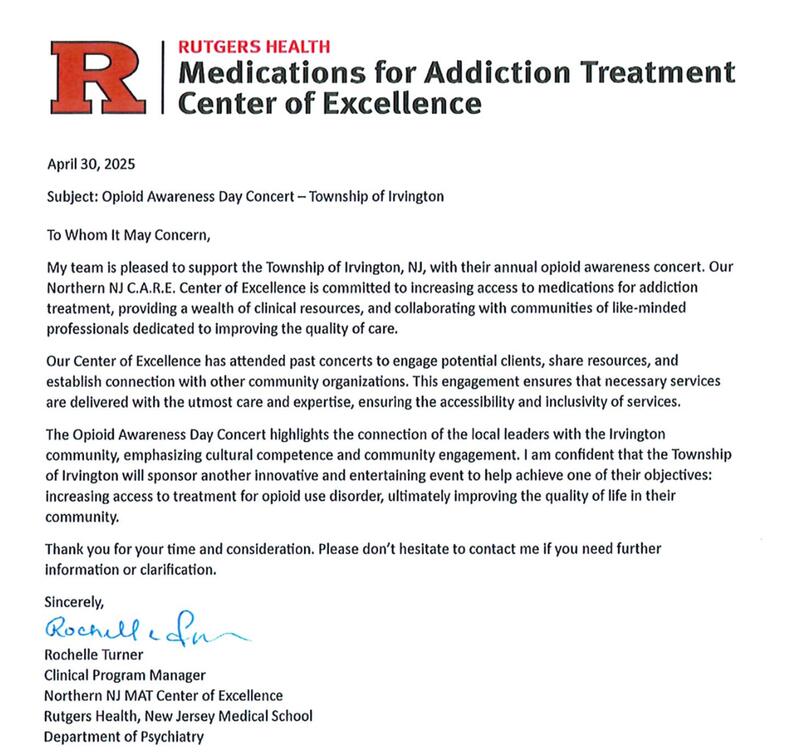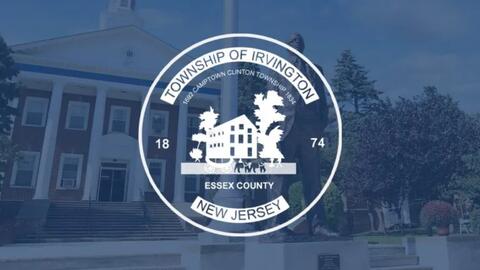By: Richard L. Smith
In response to a contentious report by the New Jersey Office of the State Comptroller (OSC), the Township of Irvington is forcefully defending its decision to use national opioid settlement funds to host two large-scale public concerts aimed at raising awareness about addiction and overdose prevention.

Township officials told RLS Media in an afternoon conversation that they have called the OSC’s accusations “false, inflammatory, and damaging,” and are actively pursuing legal action to challenge what they describe as a mischaracterization of their public health strategy.
Our staff have found that at the heart of the dispute is over $600,000 in settlement funds Irvington used to organize the opioid awareness events in 2023 and 2024. 
The concerts featured nationally recognized musical performers, including R&B artists like Musiq Soulchild and Donell Jones, and drew thousands of attendees.
During the events, township employees distributed Narcan and educational materials, connected residents with addiction treatment services, and engaged in meaningful conversations with the public, particularly within Black and Latino communities disproportionately affected by the opioid crisis.
The OSC claims that the township “wasted and misspent” the funds on entertainment, branding the events as “concerts disguised as public health efforts.” Irvington, however, strongly disputes that narrative.
“This initiative is about saving lives and bringing people together to eliminate the stigma associated with addiction,” said Mayor Tony Vauss in a letter dated May 29, 2024. “With all due respect to the OSC, they know nothing about my community and the people within it.”
In a letter obtained by RLS Media, Rutgers Health officials supported Irvington’s opioid awareness concerts, calling them an effective way to connect residents with treatment and reduce stigma in a culturally competent way.
According to the letter, Rochelle Turner of Rutgers’ Northern NJ MAT Center of Excellence confirmed that her team attended the events to distribute clinical resources and engage potential clients, praising the concerts for fostering accessibility, inclusion, and strong community engagement.

The Township maintains that the events were not only legal but culturally practical.
The use of high-profile musical talent, officials argue, was both intentional and justified under New Jersey’s public contracting law, specifically through the Extraordinary Unspecifiable Services (EUS) clause of N.J.S.A. 40A:11-5.
This legal exception allows municipalities to hire professionals whose services are inherently qualitative and cannot be competitively bid, such as entertainment for specialized public events.
In its formal response to the OSC, Irvington attached detailed documentation supporting its decisions, including:
• A legal memo outlining the rationale for the EUS contracts.
• Correspondence to the Governor and Senate President highlighting alleged misconduct by the OSC.
• A letter of support from Rutgers Health’s Medications for Addiction Treatment Center of Excellence, which confirmed the events had clinical value and community impact.
Township Attorney Ramon Rivera argued that the OSC has engaged in biased practices, alleging selective targeting, media manipulation, and procedural abuse.
“Rather than act as an impartial agency, the OSC appears more interested in damaging the reputation of a majority-Black municipality,” Rivera wrote in court documents.
He contends the Comptroller’s office took statements out of context during taped interviews and failed to consider documentation submitted by the Township during its review.
A 36-page document reviewed by our RLS Media team showed a response to the OSC’s draft report, which was shared with other government bodies but not with Irvington itself prior to publication—a violation of N.J.S.A. 52:15C-11a. Irvington filed a defamation lawsuit and has taken its case to the New Jersey Supreme Court.
Irvington Township officials said the premature release of the report has already caused reputational harm and threatens funding relationships with state and federal partners.
“This is not about avoiding oversight—it’s about ensuring it is done lawfully, ethically, and with an understanding of the cultural and socioeconomic realities of communities like ours,” said Musa Malik, the Township’s business administrator and one of the plaintiffs in the suit.
The OSC has previously scrutinized Irvington’s fiscal operations, but township officials argue that prior audits were handled more professionally and respectfully.
In this instance, they say, the OSC’s findings read more like “an accusatory editorial than a performance audit,” lacking nuance, ignoring context, and undermining public trust in local government efforts to fight addiction in a way that resonates with residents.
While the debate over how to best utilize opioid settlement funds continues across the state, Irvington insists that its approach—engaging the public through music, education, and culturally aware programming—was not only practical but necessary.

“We remain committed to transparency and good governance,” said Mayor Vauss. “But we cannot allow a flawed and inflammatory report to circulate without due process.”
As the legal battle continues, Irvington has reaffirmed its commitment to addressing the opioid crisis with creativity, compassion, and community-based solutions.
